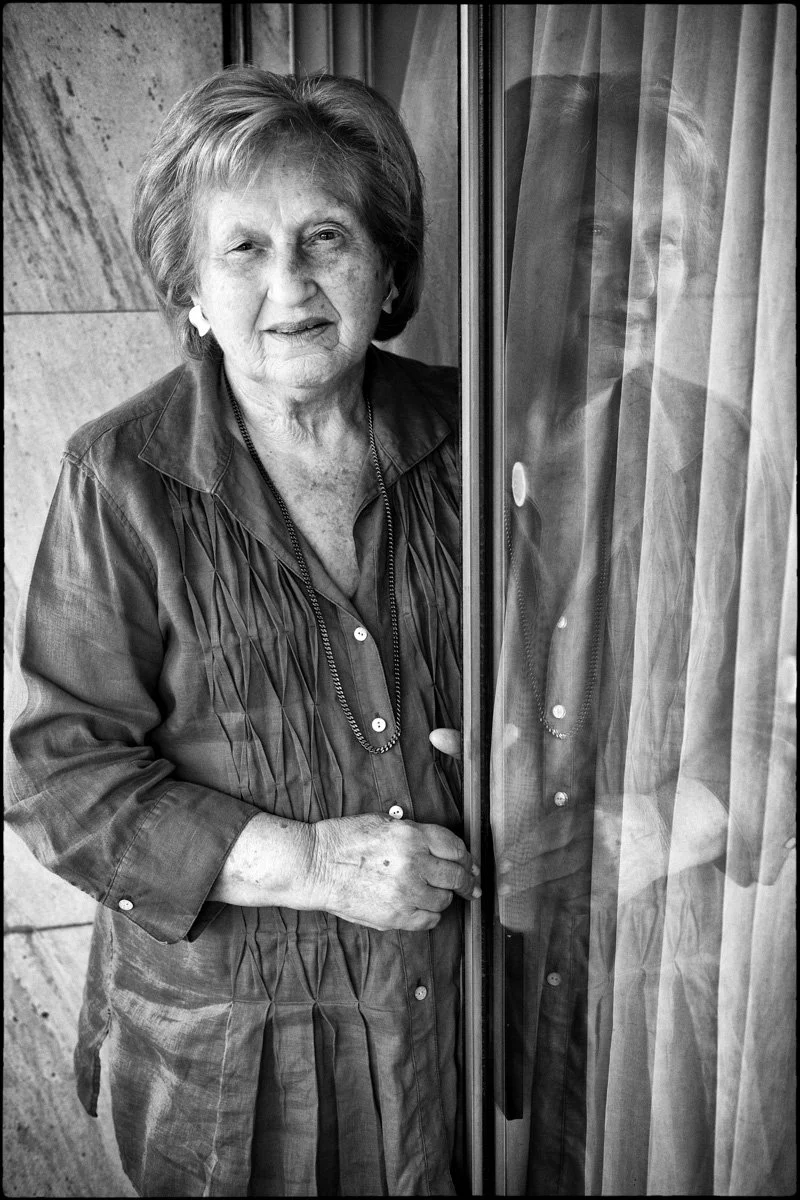Catalina Gitla Hochmann de Jakter / Uruguay 2020
She was born on April 4, 1934 in Poland, in the village of Brok-Ostrow near Warsaw. Her family consisted of her parents and her little sister.
In September 1939 the Nazis entered their village; she was only 5 years old and they were separated from her father, leaving her with her mother and a 6-week-old baby sister. The next day the killings, raids and interrogations began.
Catherine's family and others were taken to a camp near the Soviet border. While in that camp they learned that the Soviets accepted the arrival of Jewish displaced persons. So the family, her parents, sister, maternal grandparents and uncles decided to escape from that camp, with the help of a Polish friend. They managed to flee to the area of the Urals, to an important city where they spent the war as refugees from 1939 to 1945.
Life there was not easy, they lived in a military barrack, in a small space where he slept with his parents and sister. The family decided to emigrate to Uruguay. They arrived on June 28, 1947, where a maternal uncle who had arrived before the war was waiting for them.
Catalina formed a beautiful family, with her two children, 6 grandchildren and several great-grandchildren with whom she continues to enjoy this adventure that is life.
Testimony:
"My greatest message would be for me to thank life, to thank the country Uruguay for how I was able to develop with dignity with the little we had when we arrived; to thank the free, secular and compulsory education of this country that allows us all access to education.
My testimony is a testimony of my life trajectory from birth to the present day.
From the beginning all my internal war began; no matter where we were, the war was with me. Although I live in Montevideo which is a blessing from G-d, the war is always present in my mind and that is what it means to be a survivor.
_________________________
Nació el 4 de abril de 1934 en Polonia, en el pueblo de Brok-Ostrow cerca de Varsovia. Su familia estaba constituida por sus padres y su pequeña hermana.
En setiembre de 1939 los nazis entraron a su pueblo; ella solo tenía 5 años y los separaron de su padre, quedando con su madre y una hermanita de 6 semanas de vida. Al día siguiente comenzaron los asesinatos, redadas e interrogatorios.
La familia de Catalina y otras fueron trasladadas a un campamento, cerca de la frontera soviética. Estando en ese campamento supieron que los soviéticos aceptaban la llegada de desplazados judíos. Fue así que la familia, sus padres, hermana, abuelos maternos y tíos deciden escapar de ese campamento, con ayuda de un amigo polaco. Lograrían huir a la zona de los Urales, a una ciudad importante donde pasaron la guerra como refugiados desde 1939 a 1945.
La vida allí no fue fácil, vivieron en una barraca militar, en un espacio pequeño donde dormía junto a sus padres y hermana. La familia decide emigrar a Uruguay. Llegan el 28 de junio de 1947, donde los esperaba un tío materno que había llegado antes de la guerra.
Catalina conformó una hermosa familia, con sus dos hijos, 6 nietos y varios bisnietos con los que continúa disfrutando de esta aventura que es la vida.
Testimonio:
“Mi mensaje más grande sería para mí agradecer a la vida, agradecer al país Uruguay por cómo pude desarrollarme dignamente con lo poco que teníamos al llegar; agradecer la educación gratuita, laica y obligatoria de este país que nos permite acceder a todos a la educación.
Mi testimonio es un testimonio de trayectoria de vida desde el nacimiento hasta el día de hoy.
Desde el principio empezó toda mi guerra interna; no importaba dónde estuviésemos, la guerra me acompañaba. Aunque vivo en Montevideo que es una bendición de D’s, la guerra siempre la tengo presente y eso es ser sobreviviente.

